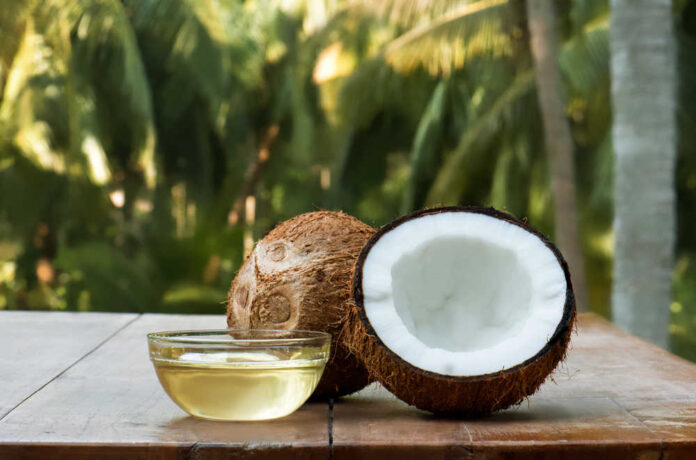
There are many different types of fat. One way to categorize fatty acids is based on whether they are saturated or unsaturated.
Saturated fats are solid at room temperature, while unsaturated fats are liquid. While animal fats are generally saturated, and plant oils are typically unsaturated, coconut oil is considered saturated fat.
Saturated fats are associated with increased LDL cholesterol, blood pressure, insulin resistance, and inflammation. Diets high in saturated fats may increase your risk for heart disease and other chronic illnesses.
But there are different types of saturated fats: short-chain triglycerides (SCTs), medium-chain triglycerides (MCTs), and long-chain triglycerides (LCTs).
Coconut oil is made up of mostly MCTs.
Coconut Oil For Losing Weight
Long-chain triglycerides (prevalent in meats, dairy, and other animal products) are metabolized in your liver differently than MCTs.
MCTs are metabolized more quickly and go straight to your liver, where they are used for energy or turned into ketones.
Ketones are a type of energy source that your body can use when blood sugar is low. They are made from the breakdown of fatty tissue, which is the fuel we run on when we talk about “burning fat.” Ketones can also reduce your hunger, which will help you limit your calorie intake and prevent overeating.
Coconut Oil For Alzheimer’s Disease
Those MCT-derived ketones can also help Alzheimer’s patients by providing a better energy source for their damaged brains.
Alzheimer’s disease is characterized by a reduced ability to use glucose (blood sugar) for energy, which leads to cellular damage and loss of cognitive function.
By boosting the levels of ketones available to the brain, coconut oil may help improve cognitive function and slow the degenerative progression in people with Alzheimer’s.
Coconut Oil For Reducing Inflammation
Coconut oil is also a great source of antioxidants. These nutrients neutralize inflammation-causing particles in the body known as reactive oxygen species or free radicals.
Reactive oxygen species are produced as a byproduct of normal metabolic processes, but they can damage cells and tissues if they are not cleared away properly by antioxidants.
Coconut Oil For Killing Microbes
One of the healthful MCTs in coconut oil is lauric acid, which has been shown to possess antibacterial properties. This means it can help fight off infections and potentially kill harmful microbes.
Some people use coconut oil as a mouthwash to help prevent cavities and reduce plaque buildup. Consuming coconut oil may also help regulate any pathogenic bacteria that can live in your gut microbiome.
Coconut Oil For Skin Health
As a topical cream, coconut oil can improve the health of your skin.
It’s a natural moisturizer that can help heal dry and irritated skin while also helping to restore some of the skin’s protective barrier function. And by keeping your skin hydrated, coconut oil can also help to improve the appearance of fine lines and wrinkles.
Its antioxidant and antibacterial properties may also help to protect your skin from damage and infections.
So whether you enjoy its taste or feel on your skin, coconut oil can be a great addition to your healthy lifestyle.






















